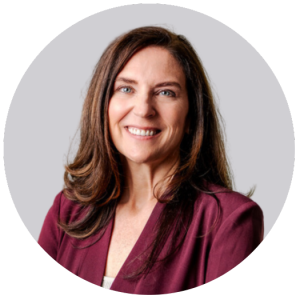Share
Reflections on reconciliation from a physician with settler heritage
Back to MessengerRead time: 3 minutes
 |
Charlene Lyndon MD FRCSC is an Obstetrician Gynaecologist from Calgary who is a descendant of settlers who arrived in Treaty 7 Territory in 1881. Dr. Lyndon is also a member of the CPSA Indigenous Advisory Circle.
This month, we asked Dr. Lyndon to reflect on reconciliation by asking her some questions about her experiences as a physician and Circle member. Here is what she has shared. |
What are some of the ways you have advocated for Indigenous people in your life and your career?
In my community I have volunteered on the Calgary Stampede First Nations Committee, where I supported the First Nations Princess and the TeePee raising competition. I have also supported First Nations students applying to university. Finally, in healthcare settings I have advocated for Indigenous patients to have care plans that support them in receiving equitable care.
What does reconciliation mean to you?
For me, reconciliation is understanding the realities of Indigenous health and taking action.
I have a life expectancy of 86 years. The shocking fact that a First Nations woman today in Alberta has a life expectancy of 68—20 years shorter—reflects the numerous disparities in the social determinants of health facing Indigenous people.
Reconciliation for me is the difficult yet necessary work to create an equitable society and healthcare system. As a settler Canadian and as a physician, I live with the legacy of colonialism, and I accept that my ethical responsibility is to take action and contribute to undoing ongoing colonialism.
Can you share a bit about your personal reconciliation journey?
I have been a consultant in a First Nations health clinic, I have joined Indigenous health committees, and I have advocated for Indigenous women to receive equitable care in the hospital setting when I witnessed institutional racism. In my downtown clinic, my front staff know to make same-day appointments when Indigenous women walk in and ask for care.
There have been times when the inequities experienced by Indigenous people leave me feeling sad, ashamed and guilty. I’ve learned that the reconciliation journey is difficult and that I will not get everything right. I have made mistakes and have needed to apologize. I accept that I will make more mistakes.
What I know is that only with action can we create space in society and healthcare settings for Indigenous people to have equity and thrive.
Can you share some reflections on the Indigenous Advisory Circle?
I would like to start by saying that as a settler I am honoured to be a part of the Indigenous Advisory Circle. The Circle is conducted in a manner that reflects Indigenous cultures and values—the meetings begin with a blessing, the wisdom and experience of elders is highly valued, and all members are respected; all refreshingly different from other medical committee meetings I’ve attended.
In the Circle, Indigenous health leaders have shared with CPSA the lived experiences of people in their communities. Despite ongoing colonialism, there is a growing sense of momentum and optimism among members of the Circle.
The Indigenous leaders in the Circle strive to assist CPSA in creating the changes necessary within our profession to make healthcare settings safer and more positive for Indigenous people.
In this committee, I will honestly share that I am learning more than I am contributing.
Are there any resources you’d recommend to a colleague who wants to further their own reconciliation journey?
I encourage all physicians in Alberta to read the Truth and Reconciliation Calls to Action, particularly numbers 18 to 24 as these pertain to health care.
I also recommend watching The Unforgotten. This 35-minute film explores the health and well-being of Indigenous peoples living in Canada. The Unforgotten is difficult to watch and will trigger strong negative emotions. Learning about the past and ongoing trauma experienced by Indigenous people is hard work but necessary to take the action required for reconciliation.





















Comments for this post are now closed. If you would like to share your feedback on this topic, please email support@cpsa.ca.